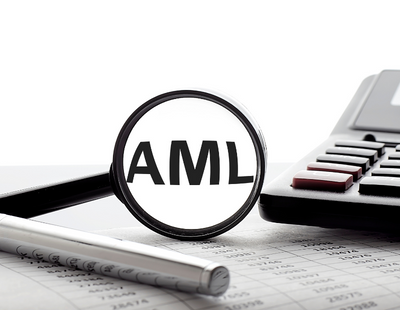Regulated firms across all sectors will be well aware of Know Your Customer (KYC) checks and their importance in combatting financial crime and money laundering. Alongside this though, firms – particularly in the property sector – must also recognise the clear regulatory requirement to complete Know Your Business (KYB) checks too. This is especially true given the rising threat of financial crime and the high levels of UK property owned by domestic and offshore companies.
As the name suggests, KYB checks play a fundamental role in not only determining the legitimacy of the business, but in verifying the identity of business clients. Without this necessary intelligence, it is hard for regulated firms to properly assess the risks posed by business clients, leaving them exposed to both fraudulent activity and regulatory action.
Skipping critical checks
Worryingly though, our latest survey at SmartSearch has found that many firms are not completing these critical compliance checks. When we questioned 500 decision makers across legal, finance, property and accounting, more than half said they do not always complete business verification checks. At best, 40% said they ‘often’ identify the owners and directors of the business, for example, rather than in every instance.
Sadly, property firms - including estate agents - are most likely to skip this critical step, with 65% of firms admitting they do not always carry out verification checks on new business clients.
This is particularly concerning given the fact that the UK remains a prime target for offshore companies to invest in property. Research by the Wealth Chain Project found that more than 138,000 residential and commercial properties in England and Wales are owned by offshore companies. In London alone, these holdings are worth a combined £55 billion.
The ultimate beneficial owner
Worse still, only 37% of firms are actually identifying the ultimate beneficial owner (UBO) as part of these checks – a considerable drop from 53% in the previous year’s survey. Through the use of shell companies and complex corporate structures, criminals are able to remain anonymous and clean illicit funds through a seemingly legitimate business. As part of their regulatory requirements, firms are obliged to identify the UBO of any business they have dealings with.
The use of complex corporate entities certainly isn’t a new challenge – recent research puts the UK number one in the world for shell company-related red flags, ahead of China in second place and the United States in third. Neither is the issue of obscure overseas property ownership. Through Companies House and its Register of Overseas Entities, the Government is desperately trying to bring greater transparency to minimise the threat of economic crime.
Regulated firms in the property sector play a pivotal role in this fight, and arguably serve as the first line of defence. Given the survey’s findings, it is apparent that there is clear room for improvement – not just to combat this threat, but to avoid serious regulatory penalties, far-reaching investigations and significant reputational damage.
Reducing the burden
A clear obstacle for firms is that KYB checks are far more complex than verifying an individual customer. That is especially true for those firms that try to manually source and verify different documents, government records and data points, as well as determine the company’s corporate structure and the identities of those within the business.
Much like we have seen in other areas of regulation, advancements in technology have helped streamline this process significantly, delivering greater efficiencies, better intelligence and reducing the margin for error. A digital compliance platform can bring together multiple data sources to deliver a complete picture of both the business and the people that have all the power.
At SmartSearch for example, our UK business check brings together key processes such as Companies House checks, financial summaries and enhanced due diligence on corporate structures and individuals linked to the business. This process takes just a matter of minutes and instantly alerts users to any potential red flags. Our international business check, meanwhile, covers more than 90 countries worldwide.
A digital-first approach also ensures regulated firms can remain vigilant and alive to any potential red flags throughout their relationship with the client. A key pillar of a digital compliance strategy is ongoing monitoring, which will continue to update client information and complete these critical checks in the background. This not only ensures the business stays protected but demonstrates the proactiveness regulators are looking for when it comes to combatting money laundering and serious financial crime.













.png)


.png)



Join the conversation
Be the first to comment (please use the comment box below)
Please login to comment